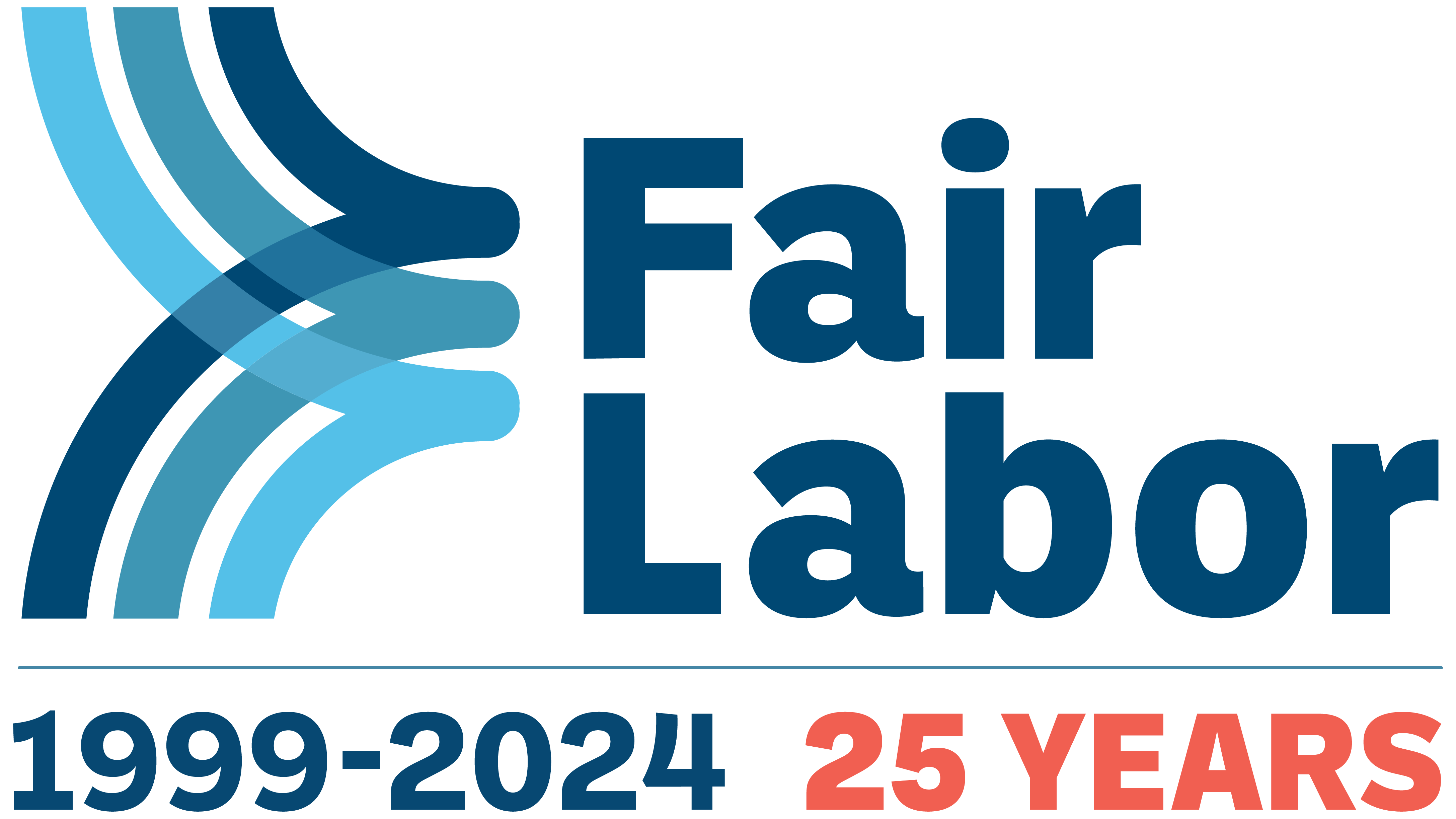Forced labor
FLA’s Fair Labor Code mandates that there shall be no use of forced labor, including prison labor, indentured labor, bonded labor or other forms of forced labor.

FLA standards on forced labor — incorporated into the FLA program since its inception in 1999 — detail more than a dozen indicators for companies evaluating whether their suppliers or producers are upholding their human rights commitments, and can be useful at any supply chain level.
With continued attention to forced labor, trafficking, and modern slavery issues throughout supply chains, including new laws and regulations, FLA member companies are implementing their long-standing commitments to protecting workers from these violations. The most proactive companies are investigating how to extend the commitment against forced labor at deeper levels of the supply chain.
Learn best practices for identifying and eradicating forced labor at the supplier level in the documents below. The materials explain the indicators of forced labor as incorporated into the FLA code, provide examples of risks and violations reported by the FLA’s on-the-ground assessors, and offer recommendations for proactive and cooperative steps that companies can take to ensure suppliers do not engage in or tolerate trafficking and forced labor.
Beyond a basic requirement that “workers shall have the right to enter into and to terminate their employment freely,” and clear prohibitions on “prison labor [and] bonded labor,” FLA standards require that workers have reasonable freedom of movement at work, must not be bound to their jobs by debt, and may not be forced to work overtime involuntarily.
Companies assessing entire supply chains against these standards — and working to remediate the violations they find — are well adapted to an evolving global environment in which governments, consumers, and civil society, are raising increasing concerns about companies’ connections to human trafficking and modern slavery.
FLA and its members believe no worker should be unable to leave a job at will because of the burden of a heavy recruitment debt to an employer. No migrant worker should have to worry about being able to return home freely because an employer is withholding a passport, other important legal documents, or workers’ wages. And no worker should have to risk termination because they are unable to work involuntary overtime or choose not to.
Apparel & Footwear Industry Commitment to Responsible Recruitment
An initiative to eliminate the conditions that can lead to forced labor
FLA and the American Association for Apparel & Footwear are leading a proactive industry effort to address potential forced labor risks for migrant workers in the global supply chain.

Assessing Forced Labor Risks in the Palm Oil Sector
FLA conducted a literature review, stakeholder surveys, and interviews with supply chain actors to identify indicators of forced labor and shed light on systemic gaps and challenges.

Forced labor updates from FLA
-
Child Labor+9
Fair Labor Highlights — December 2024
December 12, 2024 View Fair Labor Highlights — December 2024 -
Child Labor+6
FLA celebrates 25 years of history and progress with new publication
December 10, 2024 View FLA celebrates 25 years of history and progress with new publication -
Child Labor+10
FLA celebrates its 25th anniversary during its Fall Board Convening in Istanbul, Türkiye
October 29, 2024 View FLA celebrates its 25th anniversary during its Fall Board Convening in Istanbul, Türkiye
